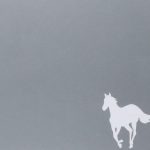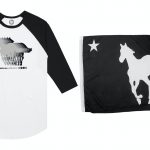Deftones’ bassist a poetic wordsmith
Chi Cheng will speak to the beat of his literary muse at Press Club
By Chris Macias — Bee Pop Music Critic
Chi Cheng thrives at 3 a.m. It’s the time for the Deftones’ bassist to spin Mahler
on the stereo, uncork some wine and start scribbling poems.
So much for the beastly bass player seen on stage. Cheng’s the kind of rock star
who likes to curl up with Carl Jung’s “Man and His Symbols” on the tour bus. And
when a tasty royalty check comes through, say for the Deftones’ million-selling
“White Pony” album, Cheng will splurge by buying Charles Bukowski’s rare manuscripts.
“I’m the biggest nerd of the band,” he says.
More like the Deftones’ resident beatnik. Cheng will read some of his poetry Monday
at the Press Club, adding a literary slant to a show that features alternative-rock
from Daycare and Mark Curry.
The reading is one way for Cheng to keep busy during this bit of downtime in the
Deftones’ recording schedule. But cranking out poems has felt just as fulfilling to
Cheng as rocking out with the band.
“These other guys I grew up playing with, like (Sonny Mayugba of Daycare) and Mark
Curry, they were just naturally great musicians,” says Cheng, in between sips of
scotch at the Swiss Buda Bar, one of his favorite watering holes. “I always had to
struggle to just keep up with these cats. Writing was always more natural to me.
I’ve always been a poet that’s been in a band, versus being a band guy that wants
to be a poet.”
Cheng started chasing his literary muse back in the late 1980s, when he was a high
school student in Stockton. He attended California State University, Sacramento,
to study creative writing and art, until headbanging with the Deftones became a
full-time gig.
Cheng’s poetry doesn’t wax about dream fulfillment or sunny matters like winning a
Grammy award. His poems are raw and boozy ruminations that are far too edgy to be
reprinted in a family newspaper. The blue language and NC-17 scenarios are even too
much for his family.
“I’ve sometimes had to uninvite people,” he says. “My mom won’t let anyone in the
family go.”
Cheng’s poetry essentially deals with anxieties faced by rock stars and regular folk
alike: love gone wrong, death, spiritual crises. One of his current poems is a
three-part word salad called “The Ghost in the Headlights.”
“The first part is about my brother’s death,” Cheng explains. “The second is about
Jesus coming back to earth, and the third part is about the general eroticism in my
life right now.
“I write about universal pain,” he adds. “Tragedy is more of a muse for me than
anything else. When I’m in a good mood, which is a lot of the time, I don’t feel
like wasting my short duration of me being in a good mood on trying to capture it
in words.”
Some of Cheng’s dense and moody themes aren’t too far from the Deftones’ own musical
heaviness. But Cheng doesn’t operate as a wordsmith within the Deftones, nor does he
want to. All Deftones lyrics are written solely by singer Chino Moreno.
“(Moreno’s) such a good lyricist that I leave it in his court,” says Cheng. “Early on,
I wrote some of the lyrics, and it was cool. We’d write a little bit together. And then
he just matured so much. I don’t think he would feel genuine singing someone else’s
lyrics. It has to be his vision, and I respect that.”
Cheng’s looking forward to upping his profile on the poetry scene. He released a CD of
spoken-word poetry in 2000 (“The Bamboo Parachute”) and has two more CDs of poetry
coming soon. Cheng also was invited recently to read at a poetry festival in the
Netherlands.
But he sure can’t beat that day job with the Deftones.
“Writing is the truest form of art because you know you can’t ever succeed and make
money at it,” says Cheng. “So you just write for the sake of writing. And I love that
about writing. That’s why I’m so unapologetic in my poetry and continue to push the
boundaries.”
www.deftonesworld.com
——————————————————————————–



